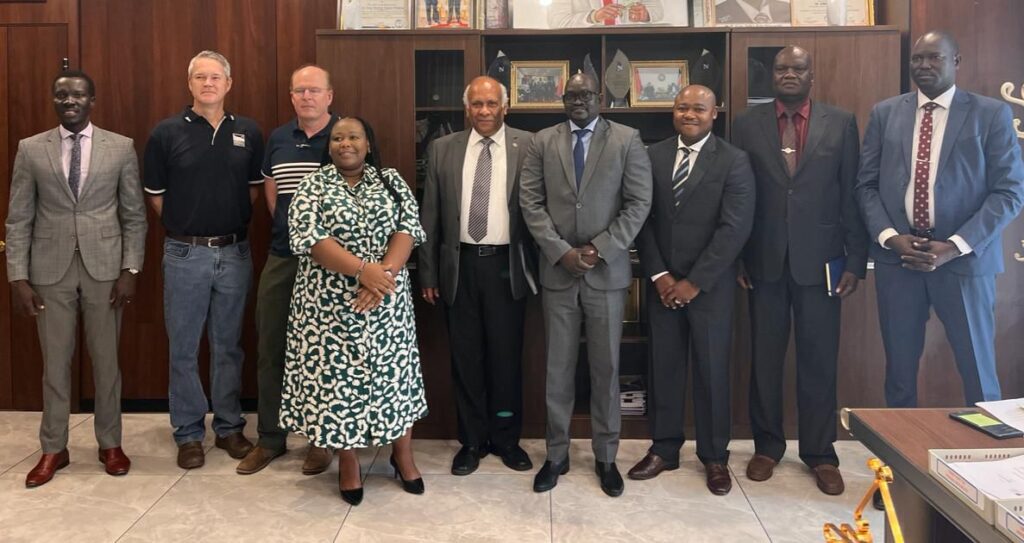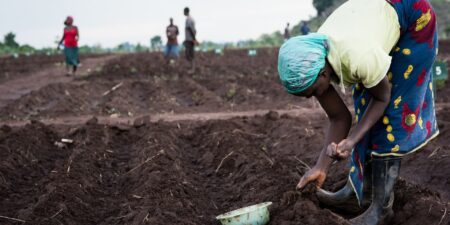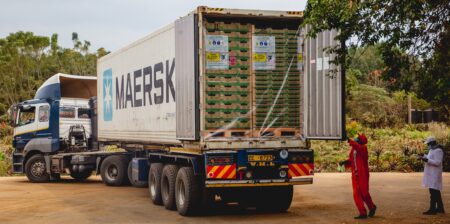- South Africa’s Strategic Fuel Fund (SSF) operates Block B2 in South Sudan in collaboration with Nilepet.
- The company has just completed a major phase of its oil and gas exploration in Jonglei state.
- SSF recently completed undertaking the largest geophysical survey ever done in South Sudan, covering 47,000 square kilometres.
In a move marking the strengthening bilateral relations between South Africa and South Sudan, the Strategic Fuel Fund (SFF), South Africa’s state-owned petroleum company, convened a key meeting with South Sudan’s national oil company, Nilepet, in Juba last week.
The meeting was a highlight of South African President Cyril Ramaphosa’s state visit, underscoring the growing economic ties between the two nations.
The SFF, which operates Block B2 in South Sudan and collaborates with Nilepet through the Nile Orange joint venture, has recently completed a major phase of its oil and gas exploration campaign in Jonglei state. The initial aerial survey of the block was finished last month, setting the stage for further exploration activities.
During the meeting, both companies shared updates on the progress of their joint venture and outlined the next steps for the project. A crucial component of the ongoing work will be the environmental impact assessment scheduled over the next six months, starting with a site visit in Bor, the capital of Jonglei.
Largest geophysical survey in South Sudan
KB Trivedi, leader of the South African delegation, highlighted the successful completion of the geophysical survey in March “This is the largest ever undertaken in South Sudan, covering 47,000 square kilometres. The data acquired is very good, a matter of pride for South Sudan and for us as a partner,” Trivedi explained. The survey was conducted by the South Sudan Geophysical Company (SSGC), a pointer to the local capacities being developed as part of this international alliance.
Trivedi also briefed the group on other key corporate developments within South Africa’s energy sector, particularly the ongoing merger of three state entities: PetroSA, iGas, and SFF, into the newly formed South African National Petroleum Company (SANPC). SFF’s CEO Godfrey Moagi has been appointed the Interim CEO of SANPC, signaling a strategic consolidation of state-owned energy resources under a unified administration.
Additionally, Trivedi cited the broader scope of the bilateral engagement, which extends beyond petroleum to include a number of mining ventures. “Mining will be a very important part of our future bilateral engagement,” he stated.
On the South Sudanese side, Nipelet’s Managing director, Bernard Makeny, expressed strong confidence in the partnership and singled out the supportive role of Nilepet in the ongoing projects. Makeny particularly pointed out the importance of the environmental impact assessment and reiterated the value of the mining sector, noting that Nilepet has already expanded its operations into this area by opening a subsidiary.
South Africa and South Sudan investment relations
The alliance between Nilepet and SFF is not just about resource development; it is also about fostering regional economic stability and growth. Both companies will be showcasing their joint ventures and future projects at the upcoming South Sudan Oil and Power 2024 conference, scheduled for June 25-28 in Juba. This event, now in its seventh edition, is the official energy and mining investment platform for the country and will feature the first-ever South Sudan Mining Forum.
The meeting between SFF and Nilepet, against the backdrop of President Ramaphosa’s state visit, is a pointer to the strategic importance of the investment ties between South Africa and South Sudan. The collaborative projects not only aim to exploit natural resources but also to build local expertise and sustainable practices that respect environmental considerations.
As these ventures progress, they promise to bring substantial economic benefits to both countries, fostering not only national growth but also regional stability and prosperity in the often volatile East African region. This partnership stands as a mark of strength on the potential of African nations working together towards common goals in energy and economic development.
Read also: Inside South Sudan’s Economic Turmoil










